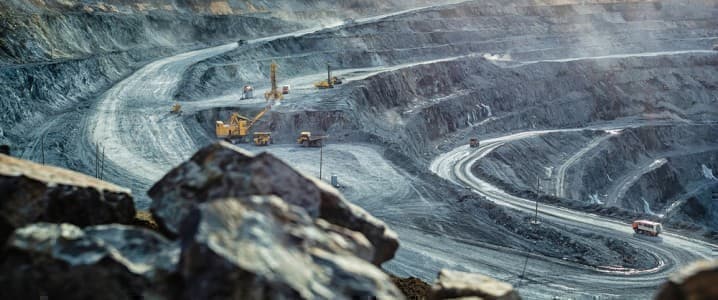Many Asian economies are likely to be negatively impacted by the ongoing Russia-Ukraine conflict, including in the form of rising metal prices.
India, however, could be the Asian country that is most impacted.
Supply shortages, rising metal prices
Analysts are also almost unanimous that the metals and minerals that will either face supply shortage or see a price hike in Asia are nickel, copper, and iron. Russia and Ukraine are global leaders in these metals. In addition, they also lead the pack in the manufacture and export of neon, palladium and platinum.
Sanctions on Russia have already led to a rise in metal prices.
Aluminum and nickel prices have already surged to decade-high levels. The conflict has created fresh concerns over tight supply chains, which were just about recovering from the COVID-19 pandemic.
According to this report, the threat of an overall shortage of nickel, used for batteries for electric vehicles (EVs), also looms high.
Palladium is currently trading at about US$2,700 per ounce, which is up about 80% since December last. Palladium is used in automotive exhaust systems and mobile phones.
Impact on Asian economies
Analysts at the Japanese global financial services group Nomura outlined the impact of the escalating geopolitical crisis between Russia and Ukraine on Asian economies. The negative impacts on Asia are primarily because most economies are net importers of oil, Nomura explained. Nearly half of Asian consumption expenditures are on food and energy.
Indonesia, however, will benefit despite being a net importer of crude oil, the Business Standard. reported.
Indonesia is a net importer of crude oil. But the impact of higher oil prices will most probably be offset by surging prices of non-oil commodities, such as crude palm oil, coal and liquefied natural gas.
Indian steel production could face challenges
For India, the conflict could hamper steel production.
Both Russia and Ukraine are manufacturers and exporters of steel. In addition, they are suppliers of raw materials like coking coal and natural gas. Analysts say the conflict in Ukraine could affect Indian coking coal imports from Russia.
In the event that the Ukraine crisis affects the pact with Russia for mining and steel, with a particular focus on coking coal, it will pose a challenge to India’s aim of diversifying its supply chain.
In October last year, India and Russia signed a memorandum of understanding (MoU) for a strategic partnership in mining and steel, with a special emphasis on coking coal. The collaboration would have provided India with a pricing advantage for domestic steel producers. Furthermore, it would have assured supplies of one of the most critical inputs that accounts for 40% of the total steel production cost.
The MoU envisaged joint projects and commercial activities relating to coking coal. Those included the provision of high-quality coking coal to India over the long term. In addition, it included the development of coking coal deposits and logistics.
Today, India imports a majority of its coking coal from Australia. Australia has agreed to meet India’s demand for coking coal. Talks are also underway with Brazil and a few central Asian nations.
Nickel, aluminum impacts
Last Friday, the benchmark price of nickel on the London Metal Exchange (LME) surged to around $25,000 per ton, the highest in almost a decade.
Russia supplies about 7% of global nickel output. Furthermore, Russia accounts for 18% of China’s nickel imports.
China, though, may not be very affected by the war because of two reasons. First, it has close strategic ties with Russia. Second, its imports from Russia mainly come in the form of nickel plates for stainless steel and alloy production, not batteries.
Global aluminum is another metal seeing impacts from the war. LME prices of aluminum have already touched the highest since 2008. Russia produces about 6% of global crude aluminum.
By AG Metal Miner
More Top Reads From Oilprice.com:
- Can Guyana Unlock Its True Energy Potential?
- Why China Should Want Russia’s Invasion To End
- Kazakhstan Braces For Russian Sanction Fallout


















